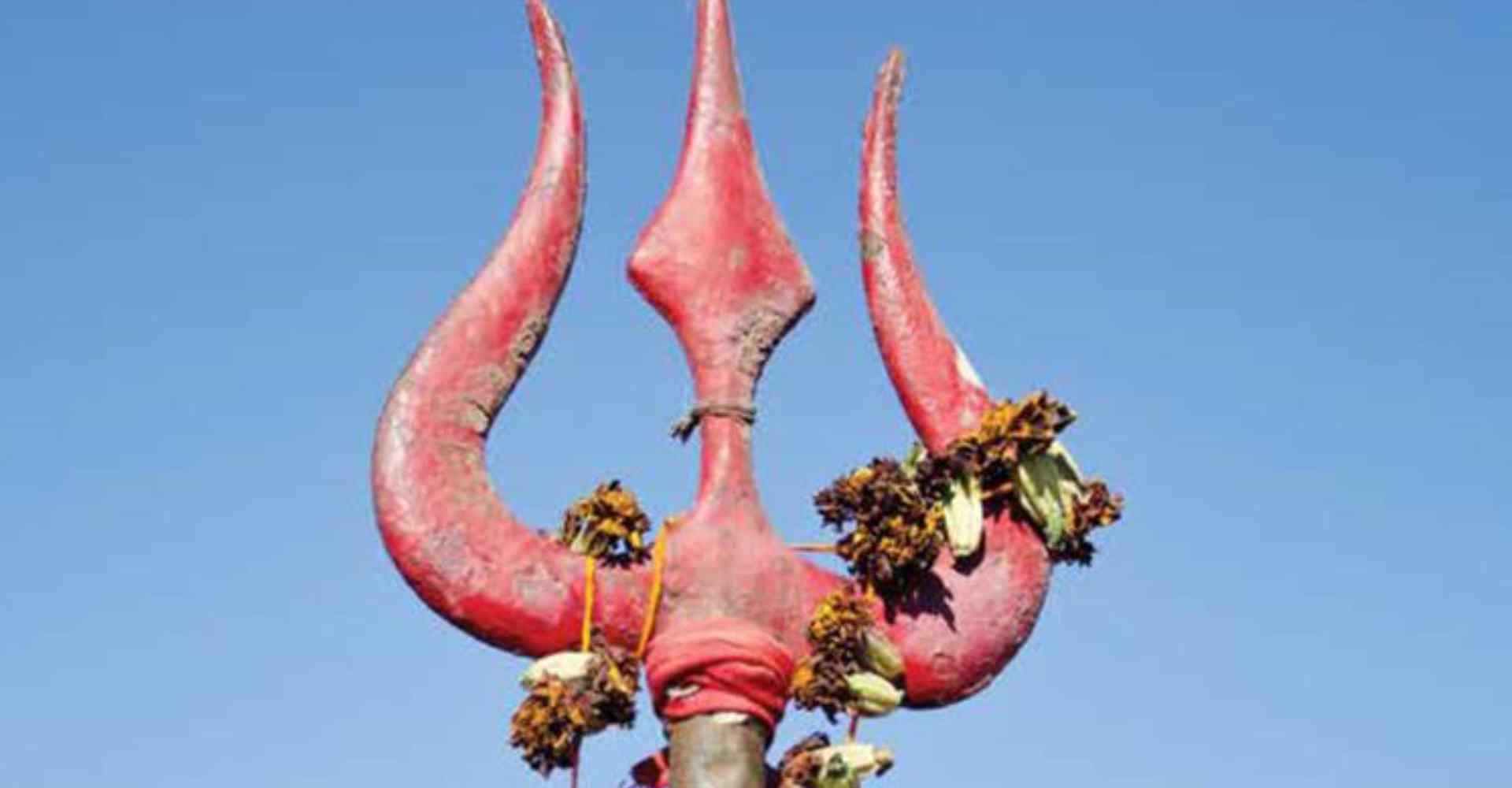Re-conversion was the flavour of the Christmas season in India this year. The season of advent never saw a day when the media did not carry the news of some re-conversion ceremony happening in India with reports of “x” number of Christians or Muslims converting to Hinduism. The groups that conduct the ceremony call it homecoming, or “Ghar Wapsi” and differentiate between conversion and re-conversions.
The re-conversion drive is not new although the issue came to national notice after an alleged re-conversion event in Agra organised by the Dharma Jagran Samanvay Samiti (DJSS) wherein 200 Muslims from at least 57 families were claimed to have been converted to Hinduism by the DJSS.
One of the alleged converts later told television news channels that ration cards, BPL (below poverty line) cards and Aadhar cards were promised by the organisers of the event. “We were told we will get ration card, Aadhar card, the police will not bother us. We are poor so what do we do?” he told the media.
The Agra event was followed by pronouncements from the DJSS and other groups of a planned re-conversion event in Aligarh wherein they intended to convert 4000 Christians and 1000 Muslim families on Christmas day.
On December 18, the national minorities day, Rajeshwar Singh, the head of DJSS told the national media that his organisation will make sure that India is cleansed of Christianity and Islam by 2021. Mr. Singh had earlier made news when on December 12; the media reported his appeal to fund the “costly” conversion movement to Hinduism in Uttar Pradesh. Undated letters and posters addressed by him sought a donation of Rupees 5 lakh for converting a Muslim and Rupees 2 lakh for the “ghar wapsi” of a Christian.
The noise of re-conversions, this advent, was also accompanied by pronouncements from various allies of the ruling government. Mr. Mohan Bhagwat of the RSS defended the re-conversion process and designated India a Hindu Rashtra (Nation). Mr. Togadia of the VHP went further and claimed, “At a point of time, the entire world was Hindu.” Sushma Swaraj, the current Minister for External Affairs also contributed to the controversy by demanding that the “ Bhagwat Geeta” be made the national book of India. On December 1, the Union Minister Sadhvi Niranjan Jyoti made communal remarks and used expletives in an election rally in New Delhi. BJP leader Sakshi Maharaj from Unnao, Uttar Pradesh also came under fire when he called Nathuram Godse, the killer of Mahatma Gandhi, a patriot.
When the opposition cornered the Government in the Rajya Sabha during the winter session of the Parliament and demanded that the Prime Minister give a statement on the recent happenings, the government came out with a proposal of a nationwide anti-conversion law. This demand of the government is widely supported by various allies of the BJP and offshoots of the RSS and VHP. The council of ministers of the BJP including Parliamentary Affairs minister Venkaiah Naidu and External Affairs minister Sushma Swaraj have also come out strongly in support of such a move.
The Christmas season also saw the government calling the nation to observe Governance day in the honour of the Ex-Prime Minister Mr. Atal Bihari Vajpayee on his birthday, December 25, which is also Christmas day. Schools and Universities were given notices to remain open, several government departments remained open despite contrary statements from the government, and there were massive debates on TV channels on the intention of the government and its attempt to sideline Christmas.
The country seems to be bombarded daily with communal statements coming from leaders of the RSS, BJP, VHP and their allies as they inch closer to the goal of Hindu Rashtra, one statement, one controversy at a time. Through these tactics, the camel’s nose has been pushed into the tent; the body may soon follow.
But what is re-conversion? What is the rationale behind it? How long has it been going on? And how is it flawed, if it is?
The idea of re-conversion is old. Dr. Koenraad Elst, Hindutva’s (not to be confused with Hinduism, Hindutva is a political ideology that aspires for a Hindu nation) self proclaimed advocate, writes in his book The Demographic Siege, that Hindutva activists from Dayananda Saraswati in the past, to Abhas Chatterjee presently advocate that Hindus must challenge alien ideologies (meaning Islam and Christianity). He quotes Chatterjee’s words: “We consider these alien ideologies to be enemies of our nation. The goal is to bring our minorities back into our nation after destroying the deadly intoxication of these ideologies.”
Hindutva advocates the principle of an underlying “Hindu essence” that remains unaffected by conversions to alien faiths like Islam and Christianity. This notion is central to Hindutva’s ideology of re-conversion of Muslims and Christians to its brand of Hinduism.
Savarkar argued that Muslims and Christians could redeem themselves by choosing to reject their conversion and returning to Hinduism. Golwalkar reaffirmed this thought and called it, “our duty to call these our forlorn brothers suffering under religious slavery for centuries, back to their ancestral home.”
Hindutva demands full and enforced assimilation into their idea of a “national race” through religious conversion and cultural integration or advocates for permanent exclusion or subjugation of the “other” (Muslims and Christians).
Golwalker explains this, “Muslims and Christians here should give up their present foreign mental complexion and merge in the common stream of our national life.”
If Muslims and Christians chose to remain as aliens, he warned, they could only occupy a position of inferiority – “wholly subordinated to the Hindu nation, claiming nothing, deserving no privileges, far less any preferential treatment – not even citizen’s rights.”
The Sangh Parivar (family of Hindu nationalist organisations) launched the process of re-conversions encouraged by many influential leaders like Swami Vivekananda, Mahatma Gandhi and also Pandit Madan Mohan Malviya, who has just been awarded the Bharat Ratna by the present government.
Malviya who set up the Benares Hindu University, was instrumental in the coming together of Hindu Mahasabha and Arya Samaj in 1923 to make common cause on issues like cow slaughter and reconversion.
Hindu organisations have developed several rites of re-conversion, calling them purification or welcoming rites. They have deployed these rites aggressively throughout the 1980s and 1990s to counter the perceived tide of conversions to Christianity and Islam. However they do not only directly convert non-Hindus but also “integrate” and “Hinduise” the marginalised caste groups and Tribals in India.
Late Dilip Singh Judeo, Late Swami Laxmanananda Saraswati, Swami Aseemanand, Khum Singh Maharaj and L. Khimun, are among the many activists who claimed large number of converts as a result of their work in tribal areas of India.
Tribals, originally animists, have been targeted in a major way by Hindutva organisations, who are working overtime on assimilating tribal groups into their brand of Hinduism while inciting them against Christian missionaries and the Church, who have been present in the tribal areas since the 19th Century.
The Sangh Parivar has targeted Tribals not only in the central, east and north west of India but also in the North-East India in a major way especially in the states of Arunachal Pradesh, Assam, Tripura and Manipur. Syncretising local religions to counter the Christian presence is a formula that works there like in the rest of India.
The DJSS and its associates raise funds locally and internationally. The association between the DJSS and the United States-based International Development Relief Fund (IDRF) is well recorded, especially in relation to its activities in Bihar and Jharkhand. News magazine Frontline reported in its January 2015 issue, that “new funding avenues have been opened through organisations such as the Hindu Unity Front, which has units in the U.S., the United Kingdom and other parts of Europe. Organisations such as the Overseas Friends of the BJP and the VHP’s international units also support the DJSS. This funding has become more intensive after the formation of the Modi government.”
At the field level, the DJSS works closely with Sangh Parivar affiliates such as the Vanvasi Kalyan Ashram, the Ekal Vidyalaya, the Sewa Bharati, the Vivekananda Kendra, the Bharat Kalyan Parishad and the Friends of Tribal Society, some of which have been found responsible for the forced conversions of tribal Christians in Odisha and Madhya Pradesh.
Re-conversion ceremonies are often attended and endorsed by BJP legislators. For e.g., in Chhattisgarh, BJP MP Dinesh Kashyap regularly attends re-conversion ceremonies organised by the DJSS and in Uttar Pradesh, Yogi Adityanath, the outspoken BJP MP openly endorses re-conversion activities.
The re-conversion ceremonies differ from place to place according to the acceptable context. So while in Chhattisgarh the late Mr. Judeo used to wash the feet of the re-converted person with holy water and declare the person Hindu again, in Jharkhand Mr. Tirkey of the Central Sarna Committee, makes the converted person taste a drop of blood of a freshly sacrificed rooster, besides washing their feet, and sprinkling water on them.
Huge numbers of converts are usually claimed by Hindu groups. For instance, Rajeshwar Singh of the DJSS claims that the DJSS has converted over 5 Lakh people to Hinduism in Uttar Pradesh alone and Radheshyam of the DJSS in Chhattisgarh lays claim to more than 57, 000 families that his group had allegedly made Hindus during their campaigns since the BJP government led by Raman Singh came to power in the state since 2003. However, a close investigation reveals that these numbers may not be trusted and may be part of a well-oiled propaganda and funding machine.
According to Dr. John Dayal, member of the National Integration Council, what Hindu extremists call “reconversion” is in most instances “a case of mere conversion at best, and forcible or coercive conversion at worst.”
Hindutva groups often accuse the Muslim and particularly the Christian minority of practicing forced and fraudulent conversions. Several states in India, since the late 1960s, have enacted “Freedom of Religion Acts” commonly known as Anti-Conversion laws in order to check conversions by force or fraud. These laws are used selectively against minorities in these states to harass the clergy and the community for years together.
However, the Sangh Parivar believes that re-conversions do not attract the provisions of these acts. They describe re-conversions as “home coming” and not a change of religion, since the Hindu essence, mentioned earlier in the article, remains intact in a Christian or a Muslim. And so they propose the law to be selective – i.e. stop other religious conversions while continuing to sanction re-conversions to Hinduism.
The present government has demonstrated a keen interest in enacting an all-India anti-conversion law; in spite some of its ministers showing open and vociferous support for “re-conversions”. The anti-conversion law (and by extension the suspension of the freedom of conscience) is prescribed, as the price of reigning in elements that are involved in this dubious re-conversion process.
Praful Bidwai calls it “doubly offensive”. He says, “it reveals something important. Behind the campaign isn’t a lunatic fringe of extremists over which the Parivar has lost control. It’s the BJP itself.”






